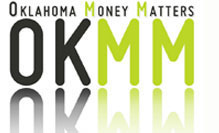Successful Credit Use
Credit is the ability to borrow money now and pay it back later, with interest. In a positive credit transaction both the borrower and the lender should benefit. The borrower gets to buy what they need immediately and the lender will receive interest as the debt is repaid. Learn more about credit in the Your Money Matters guide for college students.
::Building Credit::
Establishing a favorable credit history is a pretty smart financial move. Lenders prefer borrowers with a positive history of paying their bills on time. If you’ve never used credit before, then you’re a mystery to creditors. If you’re at least 18 years old you can legally enter into a credit contract, however, federal rules now make it more difficult to qualify for a credit card. No one under 21 can get a credit card unless they have a co-signer with established credit or can prove steady employment and ability to repay the debt. If you’re unable to qualify for a credit card from a major credit card issuer, consider the following alternatives to establish a credit rating:
- Ask your utility company or other service provider to report your positive payment history to the credit reporting agencies.
- Talk to a bank or credit union about borrowing a small loan. If you’re granted a loan, instead of spending the money put it in a savings account and have the monthly loan payments automatically debited from that account. You won’t be tempted to spend the money and you’ll have a positive payment history that’s reported to credit reporting agencies.
- Apply for a credit card issued by a local store. Often, local businesses are more willing to extend credit to someone with no credit history.
- Apply for a secured credit card. Basically, this type of card requires you to save the money first as collateral for your line of credit. Your credit line will be a percentage of your deposit, typically 50 to 100 percent of your account balance. Bear in mind that some secured credit cards charge application and processing fees, and many carry a higher interest rate than traditional, unsecured cards.
- Ask someone with an established credit history to co-sign your credit account. By co-signing, this individual commits to repay the loan if you don’t.
Once you demonstrate that you’re a responsible credit manager by paying your bill on time and in full, major credit card issuers may be more willing to extend credit to you.
::Choosing a Credit Card::
Credit cards aren't all the same and the card you choose should have features that fit your financial lifestyle. Consumers often choose a credit product based on clever marketing and a low “introductory” interest rate. Unfortunately, introductory rates will go up over time. If you haven’t paid the balance in full before it happens, you’ll pay more for credit you’ve already used.
For the best deal, choose a credit card that:
- Doesn’t charge an annual fee;
- Offers a low, fixed interest rate; and
- Provides a clear explanation of fees for late payments and courtesy services, like cash advances and balance transfers.
Before you apply, compare credit cards online through websites like BankRate.com and CreditCards.com.
If you already have a credit card but want a better interest rate, ask your creditor to match lower rates offered by competing companies. If you have a positive payment history, they’ll most likely lower your rate to keep your business.
::Smart Credit Use::
Credit cards shouldn’t be used to spend more than you actually have. If you charge a $20 pizza, because you’re hungry and out of cash, you’ll most likely still be paying it off with interest long after the leftovers are gone. Instead, consider credit cards a safety net for emergencies, like a blown tire or a visit to the emergency room.
Here are a few more tips for using credit wisely.
Pay the bill in full. Try not to charge anything on your credit card that you can’t fully pay when the bill is due. By paying in full you avoid paying more than the item is worth, in the form of interest.
Make more than the minimum payment. The minimum payment is the least amount that’s required to keep your account current. Often, it’s only $15-20 a month, which is affordable, but not ideal. If you charge $1,000 to a credit card with an 18 percent interest rate and only pay the minimum payment, it’ll take you almost eight years to pay it off. Plus, you’ll pay almost $700 in interest. Even $10 above the minimum payment can save you time and money.
Commit to a repayment plan. If you can’t pay the balance in full, create your own repayment plan. If you can find extra money in your budget to pay $50-100 above the minimum payment, you can pay off small debts in only a few months.
::Managing Credit::
Credit decisions you make today can dramatically affect your future ability to get credit, and much more. Lenders, insurers, landlords and even potential employers may determine whether you’re a good risk by checking your credit report. Your credit report is compiled by three for-profit consumer reporting agencies that collect information on your spending and debt repayment habits. Your credit score is determined based on this information.
Developing and maintaining a favorable credit history is one of the most important things you can do for your future. Here’s how:
Pay on time, every time. Payment history is the biggest factor affecting your credit worthiness. Always pay your bills on time and if something comes up, notify your lender or service provider immediately.
Keep your debt level low. Too much debt will affect your credit score in a negative way. Don’t max out your credit cards or borrow more than you can afford to repay.
Keep your available debt low. Even if you rarely use your credit cards, lenders get nervous if you have a huge spending limit available.
Limit new credit. If you apply for a lot of new credit in a short period of time, lenders assume you’re anxious to spend money. Avoid opening new accounts unless you truly need them; the 10 percent discount you may receive for applying isn’t worth it in the long run.
::Monitoring Credit::
It's important to monitor your credit report on a regular basis to ensure your information is correct and your credit isn’t being used fraudulently. Mistakes on reports are common, but identity theft is also a growing problem. It’s best to check your credit at least once a year.
We recommend using AnnualCreditReport.com. This website is the only one authorized by federal law to provide a free annual credit report from each of the three major consumer reporting agencies. If you need to order additional copies of your report, want to purchase your credit score or have questions you can contact each agency directly:
- Equifax: 800.685.1111 (Equifax.com)
- Experian: 888.397.3742 (Experian.com)
- TransUnion: 800.888.4213 (TransUnion.com)
If you need to dispute a mistake, follow the directions on the back of each credit report.



